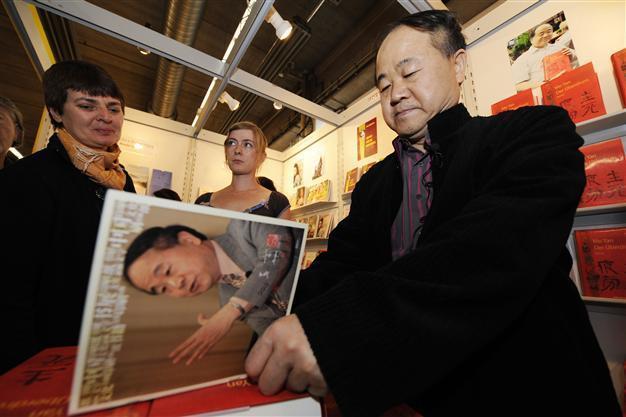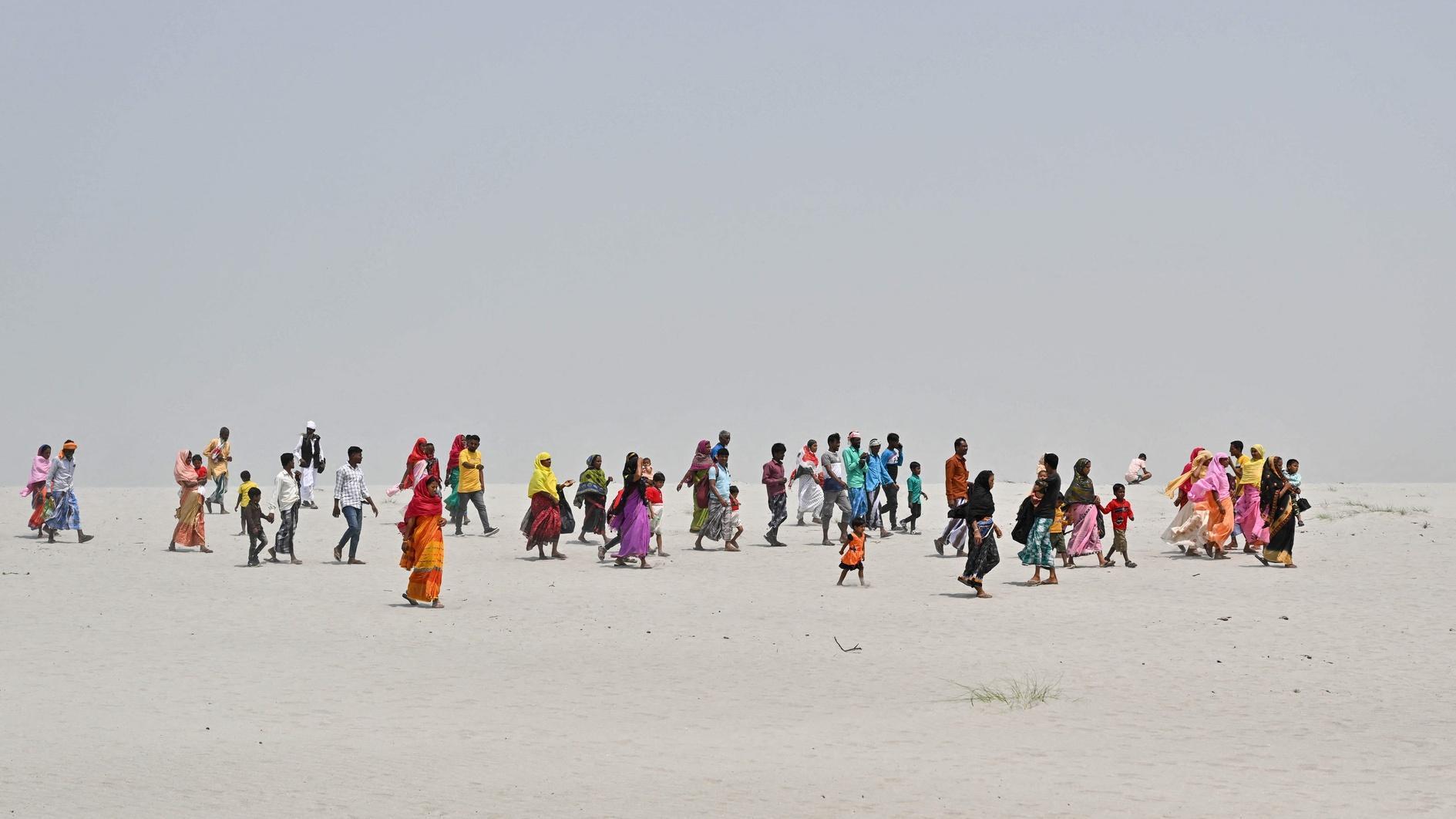Chinese author Mo Yan wins Nobel prize for literature
STOCKHOLM - Agence France-Presse

This picture taken on October 15, 2009 shows Chinese author Mo Yan takeing part in a reading at the 61st Frankfurt Book Fair in Frankfurt. AFP photo
Mo Yan, one of China's leading writers of the past half-century, on Thursday won the Nobel Literature Prize for his writing that mixes folk tales, history and the contemporary, the Swedish Academy announced."Through a mixture of fantasy and reality, historical and social perspectives, Mo Yan has created a world reminiscent in its complexity of those in the writings of William Faulkner and Gabriel Garcia Marquez, at the same time finding a departure point in old Chinese literature and in oral tradition," the academy said.
This is the first time a Chinese national and the second time a Chinese-born writer has won the prize, after Gao Xingian, who received French citizenship in 1997, was honoured in 2000.
Mo Yan, 57, is perhaps best-known abroad for his 1987 novella "Red Sorghum", a tale of the brutal violence that plagued the eastern China countryside -- where he grew up -- during the 1920s and 30s.
The story was later made into an acclaimed film by leading Chinese director Zhang Yimou, which won the Golden Bear at the Berlin film festival in 1988.
Mo Yan, a pseudonym that means "Don't speak" and whose real name is Guan Moye, "with hallucinatory realism merges folk tales, history and the contemporary," the jury said.
The Academy's permanent secretary, Peter Englund, said the Academy had spoken to Mo Yan by telephone and quoted the author as saying he was "overjoyed and terrified" at being given the prize.
Mo Yan has published novels, short stories and essays on various topics, and despite his social criticism is seen in his homeland as one of the foremost contemporary authors, the Nobel committee noted.
He has authored other acclaimed works including "Big Breasts and Wide Hips", "Republic of Wine" and "Life and Death are Wearing Me Out".
He has also written dozens of other novels, novellas, and short stories, generally eschewing contemporary issues and instead looking back at China's tumultuous 20th century in tales often infused with politics and a dark, cynical sense of humour.
The backdrops for his various works have included the 1911 revolution that toppled China's last imperial dynasty, Japan's brutal wartime invasion, newly Communist China's failed land-reform policies of the 1950s and the madness of Mao Zedong's 1966-76 Cultural Revolution.
His latest novel, 2009's "Frog", is considered his most daring yet, due to its searing depiction of China's "one child" population control policy and the local officials who ruthlessly implement it with forced abortions and sterilisations.
Despite such content, Mo Yan has so far deftly managed to avoid running into serious trouble with Communist authorities, aided by his position as vice chairman of the state-sanctioned Chinese Writers Association.
He has also supported official policies stating that art and literature must serve the socialist cause -- and, by extension, not threaten Communist Party rule.
The author grew up in Gaomi in Shandong province in northeastern China, the son of farmers.
As a 12-year-old during the Cultural Revolution he left school to work, first in agriculture, later in a factory and in 1976 he joined the People's Liberation Army and began to study literature and write.
His first short story was published in a literary journal in 1981.
The literature prize is the fourth and one of the most watched announcements this Nobel season, following the prizes for medicine, physics and chemistry earlier this week.
Last year, the literature prize went to Swedish poet Tomas Transtroemer.
The Nobel Peace Prize will be announced on Friday, with the field of possible winners wide open, followed by the Economics Prize on Monday, wrapping up the Nobel season.
As tradition dictates, the laureates will receive their prizes at formal ceremonies in Stockholm and Oslo on December 10, the anniversary of the death of prize creator Alfred Nobel in 1896.
Because of the economic crisis, the Nobel Foundation has slashed the prize sum to eight million Swedish kronor ($1.2 million, 930,000 euros) per award, down from the 10 million kronor awarded since2001.
















